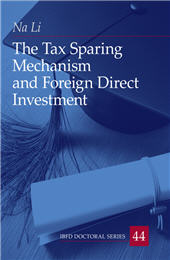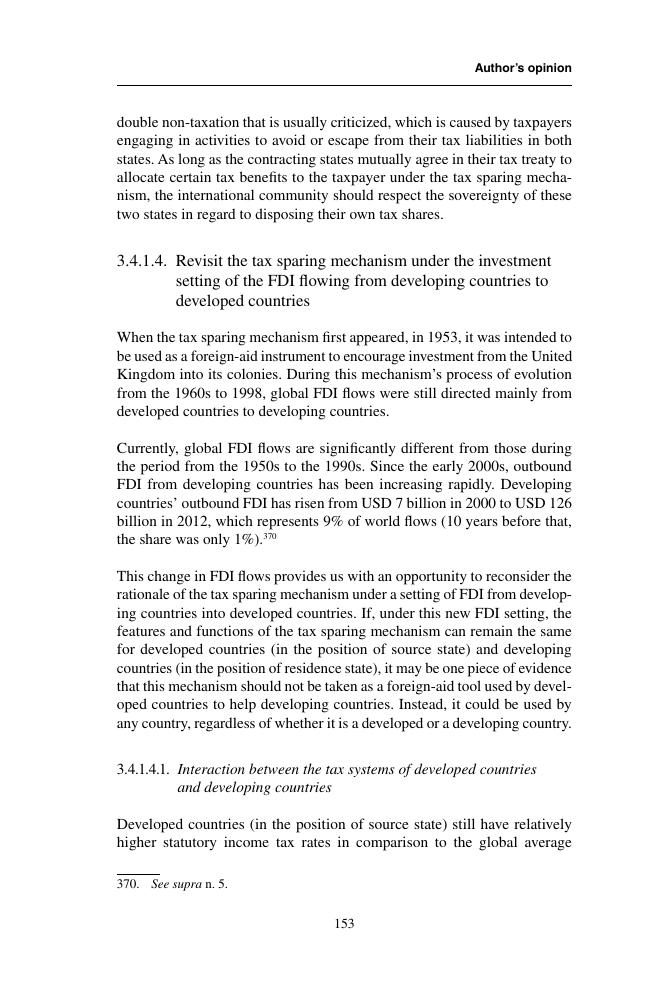The tax sparing mechanism and foreign direct investment
xvii, 317 p.
Includes bibliographical references (p. 305-317).
This book reviews the rationale for the tax sparing mechanism and analyses its effects within a framework of foreign direct investment (FDI) from China into EU Member States. The author argues that the tax sparing mechanism should not be regarded as a foreign-aid tool used by developed countries to help developing countries; it is, rather, a technique that should be used by both residence state and source state to achieve their different objectives in respect of FDI. Tax sparing is a mechanism usually reflected in tax treaty provisions, whereby one state commits to crediting the taxes spared (i.e. not actually paid) in another. The spared taxes are the common link between the tax sparing mechanism and FDI, so the book focuses on them throughout, examining the following questions:
Which state sacrifices its tax revenue to generate the spared taxes? Who benefits from the spared taxes? Why would contracting states agree to include tax sparing in their tax treaties? And how does the tax sparing mechanism preserve the effect of the spared taxes? The answers lead to the author's findings: First, the residence state is not alone in sacrificing tax revenue, as the source state also forgoes tax revenue to generate the spared taxes. Furthermore, the residence state can benefit from the tax sparing mechanism, given that the spared taxes preserved by the mechanism can enhance the competitiveness of its residents in overseas markets and can reduce the distortional effects on its residents' decisions regarding the repatriation of profits.
Second, the tax sparing mechanism is a treaty technique, with both positive and negative effects. The necessity of adopting the tax sparing mechanism is rooted in the inadequacy of the residence state's foreign credit method, which nullifies the effectiveness of spared taxes for foreign direct investors. The tax sparing mechanism can resolve this inadequacy by obliging the residence state to credit the spared taxes as if they had been duly paid in the source state. Finally, as a policy suggestion, both residence state and source state should use the tax sparing mechanism in their tax treaties. [Publisher's text]
Thesis.
Special access authorizations may apply; please contact us for further information.
-
Information
ISBN: 9789087224851
SERIES
DISCIPLINES



